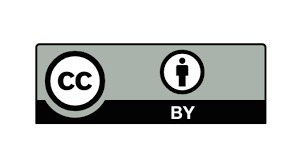The lineal differential equations of Second Order as mathematic models
Las ecuaciones diferenciales lineales de segundo orden como modelos matemáticos
Main Article Content
The resolution of problems and mathematics modeling are critic areas in learning and teaching of mathematics. Is there where it must to put on game concepts, skills and procedures originating from the mathematic experience in previous courses. Most of the students have difficulties to understand the mathematic language, related with the inadequate knowledge of specialized language that includes technique words, non-technique words and symbolic notations, specifically in the formulation of mathematic models. The purpose of this research was focused to analyze the results about the semantic knowledge that a group of students of Engineering Faculty of Francisco of Paula Santander University evidence in the representation of lineal differential equations of second order as mathematic models. The theory fundaments that gave support the research was: The theory of two phases by (Mayer, 1986), the modeling cycle under the cognitive perspective of (Ferry, 2006) and the extern representations of (Goldin & Kaput, 1996). The project was quantitative of exploratory and descriptive type. The research was based in the theory of two phases purposed by Mayer R for the resolution of mathematic problems, the modeling cycle according Ferry and the Representations theory of Goldin and Kaput. To recollect the information it was designed and applied a questionary of 17 reactive with opened and closed answers. The discoveries showed that each participant does its own intern an extern representation to concepts as: spring-mass system, weight, mass, balance point, Hooke’s Law, buffering strong, extern strong, Newtown’s Law immersed in a situation through a problem of word. It is necessary to execute deep jobs about the knowledge with the purpose of to look for explanations and aid in teaching and learning through the resolution of mathematic problems.
Downloads
Article Details
Barbosa , J. (2006). Mathematical modelling in classroom: a socio-critical and discursive perspective. ZDM, 38(39, 293-301.
Bassanezi, R., & Biembengut, M. (1997). Modelación matemática: Una antigua forma de investigación un nuevo método de enseñanza. Números. Revista de didáctica de las matemáticas, 32,, 13-25.
Berdugo, O. (2004). Comprehension and representation of algebra word problems in a second language. Obtenido de Available from ProQuest Dissertations & Theses A&I: Social Sciences. (305064402).: http://search.proquest.com/docview/ 305064402?accountid=43636 .
Blomhøj, M. (2008). Different perspectives on mathematical modelling in educational research-Categorising the TSG21 papers. In ICME 11 international Congress on Mathematics Education , 1-13 .
Blum, W., & Ferri, R. (2009). Mathematical modelling: Can it be taught and learnt? ournal of mathematical modelling and application, 1(1), 45-48.
Calle Palomeque, C. (2013). Influencia de la semántica en el segundo curso de bachillerato del colegio Benigno Malo. Obtenido de Tesis de Maestsría: http://dspace.ucuenca.edu.ec/handle/123456789/4693 .
Camarena, G. P. (2014 de Diciembre de 2004). La matemática en el contexto de las ciencias. Obtenido de Repositorio Digital de documentos en Educación Matemática - FUNES: http://funes.uniandes.edu.co/6234/ .
Camarena, G. P. (2012). La modelación matemática en la formación del ingeniero. Revista Brasilera de Ensino de Ciencia y Tecnología. 5(3), 1-10.
Cruz, C. (2010). La enseñanza de la modelación matemática en ingeniería. Revista de la Facultad de Ingeniería de Universidad Central de Venezuela, 39-46.
Ferri, R. (2006). Theoretical and empirical differentiations of phases in the modelling process. ZDM, 38(2), 86-95 .
Gallardo, P. (s.f.). La modelación matemática en el ambiente de aprendizaje: una innovación. Obtenido de Premio Nacional ANUIES 2000 a la mejor tesis de doctorado en contribución a la Eduación Superior: http://www.repo-ciie.cgfie.ipn.mx/pdf/625.pdf.
Goldin, G., & Kaput, J. (1996). A joint perspective on the idea of representation in learning and doing mathematics. . Theories of mathematical learning, 397-430 .
Gutiérrez, J. (2014). Las matemáticas en Ingeniería: todo un reto pedagógico. Innovación, Ingeniería y Desarrollo, 1(1), 75-80 .
Haghverdi, M., Semnani, A., & Seifi, M. (2012). The relationship between different kinds of students' errors and the knowledge required to solve mathematics word problems. Bolema: Boletim de Educação Matemática, 26(42B), 649-666 .
Hernández, R., Fernández, C., & Baptista, P. (2006). Metodología de la Investigación. Cuarta Edición. México: McGraw-Hill .
Martínez, M. (2009). Nuevos paradigmas en la investigación. Venezuela: Alfa .
Mathematics, N. C. (2000). Estándares Curriculares y de evaluación para la educación matemática. Obtenido de http://www.nctm.org/uploadedFiles/Standards_and_Positions/PSSM_ExecutiveSummary.pdf
Mayer, R. (1986). Thinking, Problem Solving, Cognition. Barcelona: (Trad. Graziella Baravella). (1a ed.). Barcelona: Ediciones Paidos. (Original publicado en 1983).
Mayer, R., Lewis, A., & Hegarty, M. (1992). Mathematical misunderstandings: Qualitative reasoning about quantitative problems. Advances in psychology, 91,, 137-153.
Muir, T., Beswick, K., & Williamson, J. (2008). “I’m not very good at solving problems”: An exploration of students’ problem solving behaviours. The Journal of Mathematical Behavior, 27(3), 228-241 .
Nagle, R., Saff, E., & Snider, A. (2001). Ecuaciones diferenciales y problemas con valores en la frontera. Pearson Educación .
Polya, G. (2005). Polya, G. (2005). Cómo plantear y resolver problemas. (reimp. XVII). . Mexico: (Trad. Zagazagoitia) Mexico: Editorial Trillas. (Original publicado en 1965) .
Sabbagh, S. (2008). Solución de problemas aritméticos redactados y control inhibitorio cognitivo. Universitas Psychologica, 7 (1), 217-229 .
Santos, L. (07 de Marzo de 2008). La Resolución de problemas: Avances y perspectivas en la construcción de una agenda de investigación y práctica. Obtenido de Memorias de seminario de Resolucón de Problemas: 30 años después del XII Simposio de la Sociedad Española de Investigación en Educación Matemática: http://www.uv.es/puigl/MSantosTSEIEM08.pdf .
Shonenfeld, A. (1980). Enseñanza de habilidades para resolver problemas. he American Mathematical Monthly , 87 (10), 794-805 .
Wright, J. (2014). An investigation of factors affecting student performance in algebraic word problem solutions. Obtenido de Available from ProQuest Dissertations & ThesesA&I: http://search.proquest.com/docview/ 1630101245?accountid=43636.




 Perfil Google Scholar
Perfil Google Scholar



